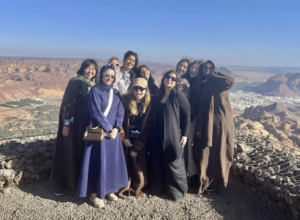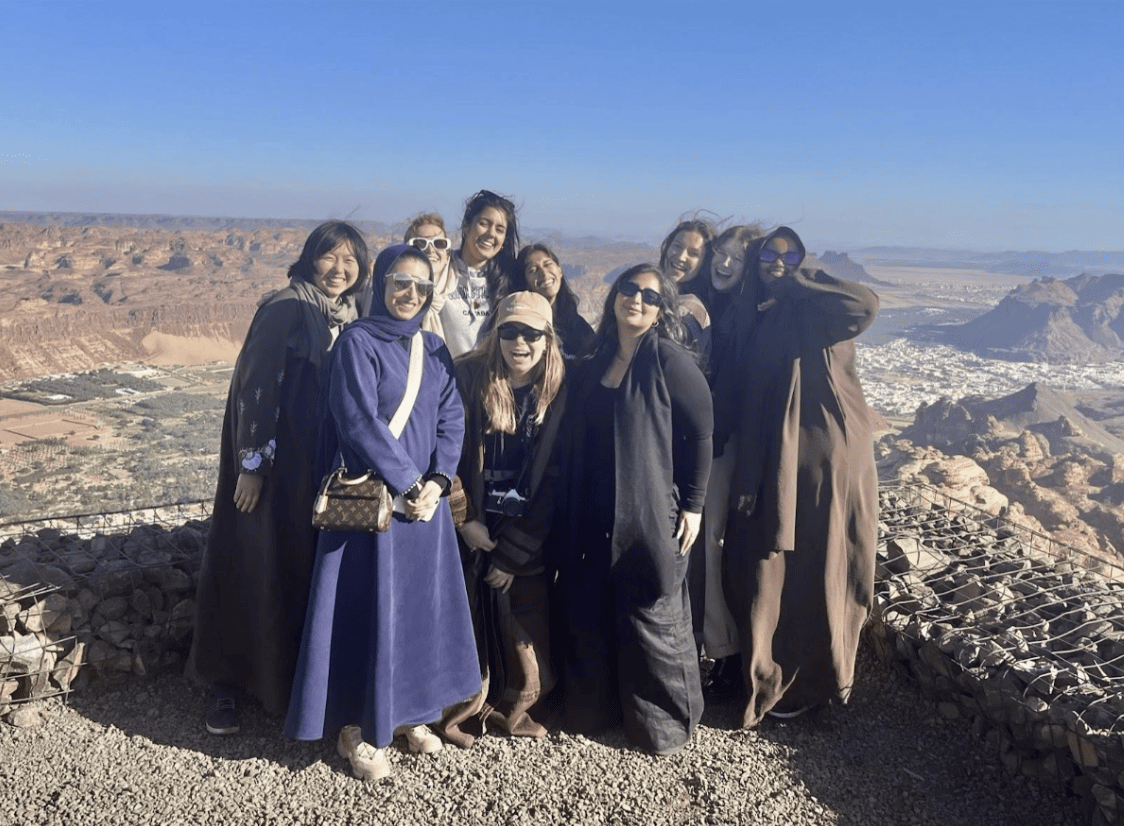
The Saudi people are tired. Tired of having to justify themselves. Tired of having to defend their attitudes. Tired of a relentless and unforgiving West that seemingly can’t escape sensationalism nor overcome partiality. As a result of this fatigue, we, as outsiders, did not face confrontation or clash upon arriving in the Kingdom. For Saudis, their value system isn’t up for debate, which meant we were given a simple choice: listen or hide behind a veil of ignorance. With an open heart and an open mind, I embarked on a journey to challenge my deeply entrenched and systematized Western bias. Along the way, I was met with a slew of surprises, notably in the domain of women’s rights and roles.
Although Saudi women were granted the right to drive a mere six years ago, it can also be said that many nuances are often disregarded in Western media coverage. Through my numerous conversations with local women, I discovered that, in their eyes, the law wasn’t a big deal. Women had already been driving far before the law’s promulgation, oftentimes in the countryside or the desert. In what was an economically rational move, the decision to grant women the right to drive has fostered flexibility and independence. Women, especially those who work, no longer have to hire a driver or rely on a male family member or spouse, galvanizing mobility through choice.
I felt safer in Saudi Arabia than I do in my French college town. Consider the case of catcalling. In Saudi, it’s unheard of; in Reims, it happens so often that it’s almost accepted as normal. Even on a policy level, the West shouldn’t be written off as perfect either. Saudi women are entitled to ten weeks of paid maternity leave while the U.S. can’t even climb to the single digits, challenging the commonly accepted narrative that the West overwhelmingly prevails across the board when it comes to women’s rights.
On a broader note, baked into the social norms of the country, womanhood commands an inherent respect. In many ways, feminism for Saudi women is not having to lift a finger because they are women. At their airports, you’ll find employees whose sole job is to lift bags off conveyor belts for women who opt into the service. I will say, this “princess” mentality definitely rubbed off on me; I found myself asking for help more often than I usually do. Many critics in the West will tell you it’s disempowering for women to be pampered like this. However, what I think is more important than being pampered is the choice to be pampered. If I wanted to pay someone to take my luggage off a conveyor belt at a Saudi airport, I had the option. It was my choice to veil or not. It was my choice to wear an abaya or not. The choice was always mine. For me, that’s real feminism.
Although social pressure, fueled by gender norms, is shrinking, it’s far from gone. I’m not fully convinced that Saudi women can be whoever they want to be (yet). In the streets of AlUla, dancing was seemingly reserved for men. When my female-presenting colleague expressed interest in wearing a ghutra, she was met with judgment and rejection. Saudi women remain boxed into their femininity, and they’re rewarded for staying in that box.
If you tap into too much masculinity, you’ll risk being convicted of a social crime. Not wearing an abaya is one thing. That’s been normalized. Bending gender norms, however, is still quite alien.
But for Saudis, their traditionalism is an asset, not a weakness. They take pride in the family unit as the North Star of their society. They’ll tell you that small families, Western individualism, and high divorce rates are poisoning the social fabric of the Global North. Because of the strength of their extensive family networks, it’s easier for them to assimilate a common set of values. That’s one reason why the country is so united behind its “Vision 2030” agenda. However, despite their homogeneity, Saudis will tell you that no value system is better than the next, finding beauty in the diversity of our world.
Even in acknowledging their imperfections, I would be remiss to not give credit where it’s due: Saudi Arabia has modernized at an astonishing rate, especially when compared to its Western counterparts. Choice for Saudi women is only ever growing, never retreating, spurring a momentum that will undoubtedly empower future strides.
In a country that isn’t necessarily trying to use the West as an exemplar, gender issues aren’t black-and-white as I’ve observed. In fact, the situation is very colorful and always evolving. As I return home, I will be prepared to explain how the truth is somewhere in the middle. In a sea of reductionist media coverage, it’s vital to read between the lines to find the nuance that deserves to be understood.
Other posts that may interest you:
- The Trouble with ‘Ecocide’
- Carbon dioxide removal – hit or miss?
- Local Victories for Turkish Opposition — A Sign of Hope?
- Are France and Japan a Mismatch Made in Heaven?
- A Reflection on Dark Tourism
Discover more from The Sundial Press
Subscribe to get the latest posts sent to your email.





